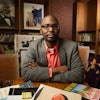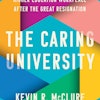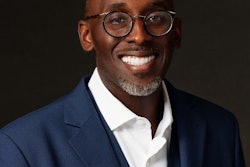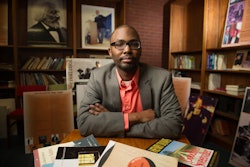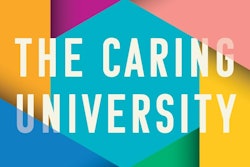According to the website thinkcollege.net, there are 274 higher education programs for students with intellectual disabilities in the United States. About 149 of these programs are part of four-year colleges and universities. Since the Higher Education Opportunity Act of 2008, which allowed students with intellectual disabilities to be eligible for federal financial aid and provided funding for development, the number of programs has almost doubled. While most offer program-specific classes that help to support these students, the real rewards—and challenges—come when a larger university curriculum is inclusive and accessible.
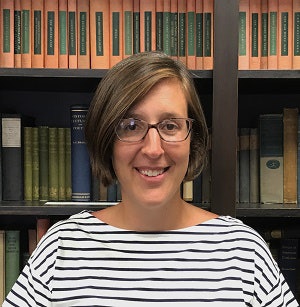 Dr. Pepper Stetler
Dr. Pepper StetlerAdmittedly, I would not be interested in inclusive university programs if I did not have a daughter with Down syndrome. As the child of two college professors, she hears a lot about the value of education. I am determined to open up every educational opportunity possible for her, and I hope I never have to tell her that college is not available to her. As a professor of art history, I am not asked to think about the inclusion of students with disabilities more than most faculty. I have had many conversations with students about their individual accommodations in my courses, like needing extra time on exams or frequent breaks from class. But inclusive university programs for students with intellectual disabilities go further. They challenge traditional ideas about the purpose of college and whom higher education is intended to serve.
For many, the university is a context defined by exclusion, serving a relatively small and privileged population. And as recent scandals have made so explicit, traditional admissions criteria is not always based on academic merit. Programs for students with intellectual disabilities often have an alternative admissions process, in which an expressed desire to go to college, live more independently, and open employment horizons carries a great deal of weight. Most often, inclusive university programs provide a non-degree rewarding curriculum, and many offer a certificate rather than a diploma. More flexible course and GPA requirements give students with intellectual disabilities the opportunity to think carefully about what they want to gain from college. The best programs give these students access to any course in the university bulletin and the appropriate resources, including counselors and peer mentors, to succeed on their own terms. In this model, I see a radical and welcome shift to more engagement and purpose—less concern over percentage points of a grade and more reflection on what learning means to their lives. In other words, it is possible that students with intellectual disabilities are the kinds of students I have wanted all along.
A successful college experience helps students realize the kind of global citizen they want to become. This lifelong pursuit should be possible for all students regardless of their abilities. But if employability is the driving force of higher education these days, then there is an equally convincing case to be made for the value of inclusion. Only 34% of adults with intellectual disabilities are employed. This statistic includes a variety of part-time and underpaid forms of work, including facilities politely referred to as “sheltered workshops.” In 2019, 56% of students who completed a program the previous year had paid, integrated employment within 90 days of exit. While the skills learned in college certainly contribute to this success, I imagine it is also due to the meaningful interactions with peers during college. Inclusive programs can teach all students about the abilities and assets of a group of people that have been isolated from social, professional, and academic communities for too long.
This summer I attended the Inclusive University Program at Miami University, a one-week residential college experience for students with intellectual disabilities. For five years, Ashley Johnson, Associate Clinical Lecturer in Special Education, has grown and developed this remarkable program. It also depends on undergraduate volunteers to mentor the visiting students and live with them in the dorms. To some degree, I was an outsider during the week. I did not bond over meals, share dorm rooms, or late-night dance parties like the students did. But what a pleasure it was to learn alongside them. I was greeted with enthusiasm and sincerity every morning when I walked into class. Students listened to each other and supported one another. I got used to being in a classroom with people who learn and process in diverse ways, which can often look and sound unpredictable. I wonder how these students would do in a less familiar academic environment, where immediate comfort and acceptance was not ensured. But such challenges should not deter from Professor Johnson’s overall lesson to her students. As she instilled in countlessly creative ways, students with intellectual disabilities can benefit from and contribute to higher education. The burden is on laws, language, and the educational system to make this world more accessible. It is a powerful and complex shift in thought, a basic principle of disability studies that has not yet been implemented in higher education.
If higher education programs for people with intellectual disabilities are to work to the fullest extent, students should not be merely included. Higher education should change to mark their valued presence. The program that Professor Johnson and her students have planned for the future at Miami University isn’t just giving them an inclusive college experience. It is giving them access to make their own choices about what that experience would be like. At the end of the week, the students presented their plan for a two-year inclusive program to a group of Miami faculty and staff. One of my favorite tenets addressed how students with intellectual disabilities would be involved in the first-year orientation course at Miami. After taking the course, a student with an intellectual disability would be eligible to co-teach the course in the following semester with a professor. I can’t imagine a more powerful statement about the place of people with intellectual disabilities in higher education. While the benefits of college to students are clear, how it can be improved by inclusion and access is an equally exciting question to consider.
Dr. Pepper Stetler is an associate professor of art and architecture history and associate director of the Humanities Center at Miami University in Oxford, Ohio.


